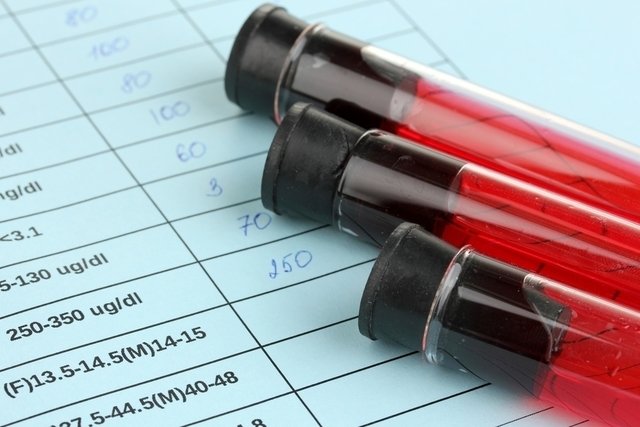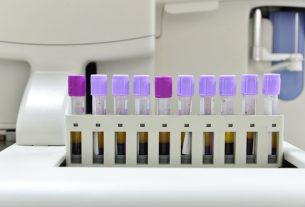Anemia is typically caused by deficiencies in nutrients and vitamins, such as iron, vitamin B12 and folic acid, but can also occur due to spinal cord aplasia, inflammatory bowel disease and colon cancer.
Normally, anemia causes symptoms such as weakness, racing heart and paleness, however, depending on its cause, other symptoms may appear such as diarrhea, bleeding, yellow skin and eyes and abdominal pain. Check out other symptoms of anemia.
If anemia is suspected, it is important to consult a hematologist so that the cause can be identified and the most appropriate treatment can be indicated, which may involve the use of iron supplements, blood transfusions, bone marrow transplants and even surgery.

Main causes
The main causes of anemia are:
1. Iron deficiency
Also called iron deficiency anemia, anemia caused by iron deficiency can cause symptoms such as tiredness, hair loss, headache, paleness and the desire to eat ice, sand or clay, for example. See more symptoms of iron deficiency anemia.
Iron deficiency is most common due to blood loss, such as heavy menstrual bleeding or hemorrhoids, a diet poor in iron or difficulty absorbing this nutrient, for example.
What to do: In case of suspected iron deficiency, it is important to consult a general practitioner. Treatment typically involves the use of iron supplements and consuming more foods rich in this nutrient, such as lentils, parsley, beans and red meat.
2. Vitamin B12 deficiency
Anemia caused by vitamin B12 deficiency is more common in people who don’t eat meat, drink a lot of alcohol, or use antacids. Typically, this deficiency causes symptoms such as weakness, tingling in parts of the body and tiredness. Check out more symptoms of vitamin B12 deficiency.
What to do: In case of suspected vitamin B12 deficiency, it is recommended to consult a hematologist or general practitioner. When the diagnosis is confirmed, treatment is usually carried out by replacing vitamin B12 with supplements or injections.
3. Folic acid deficiency
Folic acid deficiency can cause anemia and lead to symptoms such as weakness, tiredness and a racing heart. Furthermore, it is more common due to low intake of vegetables, excessive consumption of alcoholic beverages and use of medications such as lithium and phenytoin.
What to do: It is important to improve your diet, eating more foods rich in folic acid, especially dark green vegetables, such as arugula and spinach, beans or lentils. Discover more foods rich in folic acid.
However, it is recommended to see a hematologist or general practitioner to confirm the diagnosis and start the most appropriate treatment, which normally involves folic acid replacement through supplements or injections.
4. Thalassemia
Thalassemia is an abnormality in the production of hemoglobin that impairs its functioning and, in addition to anemia, can cause symptoms such as paleness, tiredness, short stature, yellowish skin and eyes and swelling in the abdomen. Understand better what thalassemia is.
In the most serious cases, anemia can be intense from the first days of life, potentially putting the baby’s life at risk.
What to do: If thalassemia is suspected, it is recommended to consult a hematologist to confirm the diagnosis and indicate the most appropriate treatment. Although treatment for anemia is not always indicated, especially when there are few symptoms, it is usually done through blood transfusions.
5. Spinal cord aplasia
Medullary aplasia is a change in the bone marrow that impairs the production of blood cells and can also cause anemia. In addition, other symptoms may also appear, such as bleeding and purple spots on the skin, and more common infectious diseases, such as colds and gastroenteritis. Check out what medullary aplasia is.
What to do: In case of suspected medullary aplasia, it is recommended to consult a hematologist. Treatment for anemia depends on the cause of the aplasia and may involve medications such as antibiotics, blood transfusions, and bone marrow transplants.
6. Inflammatory bowel disease
Inflammatory bowel diseases, such as Crohn’s disease and ulcerative colitis, can also cause anemia due to inflammation, blood loss and poor absorption of nutrients.
In addition, it is also common for others to appear, such as bloody diarrhea, abdominal pain and weight loss. Learn other symptoms of inflammatory bowel disease.
What to do: In case of suspected inflammatory bowel disease, it is recommended to consult a gastroenterologist or general practitioner. Anemia tends to improve as the inflammatory bowel disease is treated, which may involve immunomodulatory medications and even surgery.
7. Colon cancer
Although it is rare, colon cancer can cause anemia and other symptoms such as blood in the stool, abdominal pain, constipation or diarrhea, and weight loss, especially in the more advanced stages. Find out more symptoms of colon cancer.
What to do: It is important that the gastroenterologist is consulted for a detailed evaluation and to confirm the diagnosis. Anemia tends to improve with adequate treatment of the tumor, which may involve its removal through surgery and/or chemotherapy.
How to confirm if it is anemia
Anemia can cause symptoms such as tiredness, drowsiness, paleness and weakness. To find out your risk of having anemia, check the symptoms you are showing in the test below:
However, to confirm the diagnosis of anemia and identify its cause, you need to go to the doctor and undergo blood tests, such as a blood count and ferritin or vitamin B12 dosage. Find out more tests that confirm anemia.

Sign up for our newsletter and stay up to date with exclusive news
that can transform your routine!
Warning: Undefined array key "title" in /home/storelat/public_html/wp-content/plugins/link-whisper-premium/templates/frontend/related-posts.php on line 12
Warning: Undefined array key "title_tag" in /home/storelat/public_html/wp-content/plugins/link-whisper-premium/templates/frontend/related-posts.php on line 13




